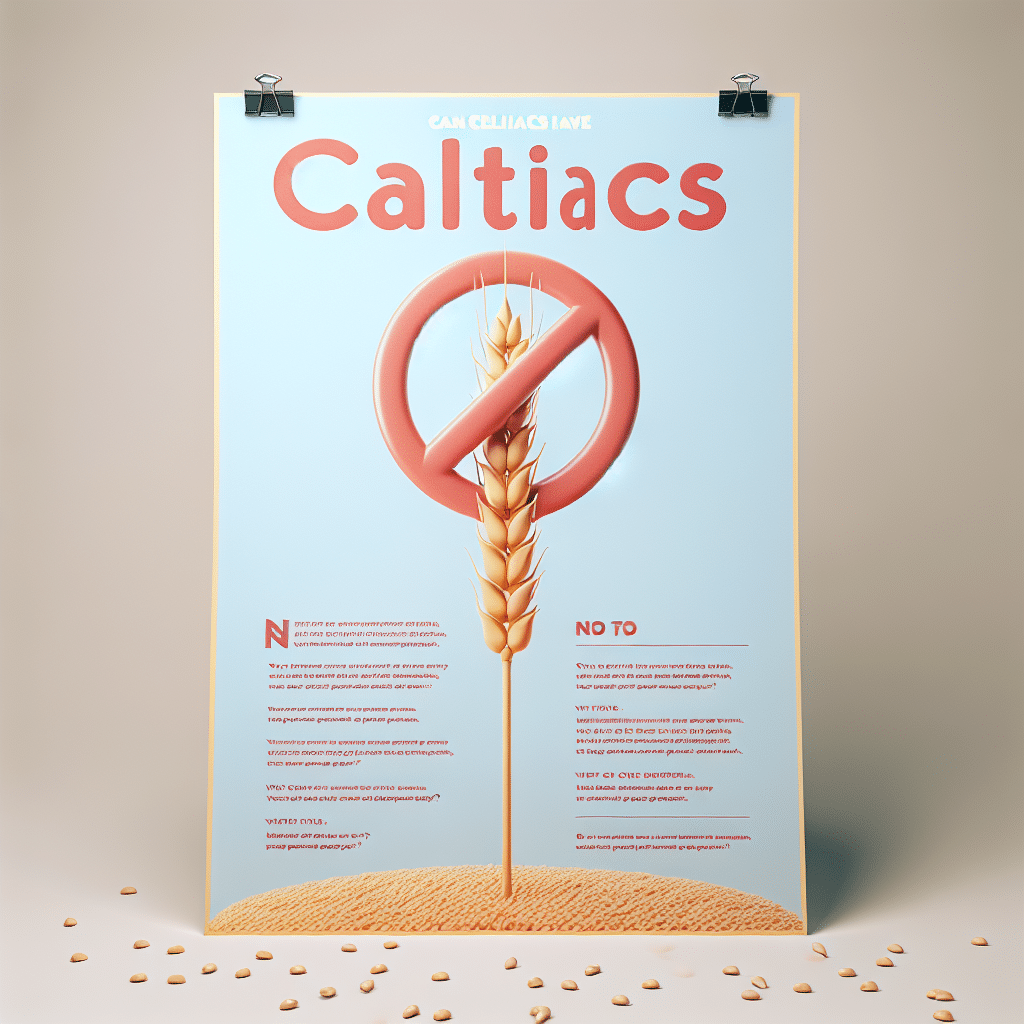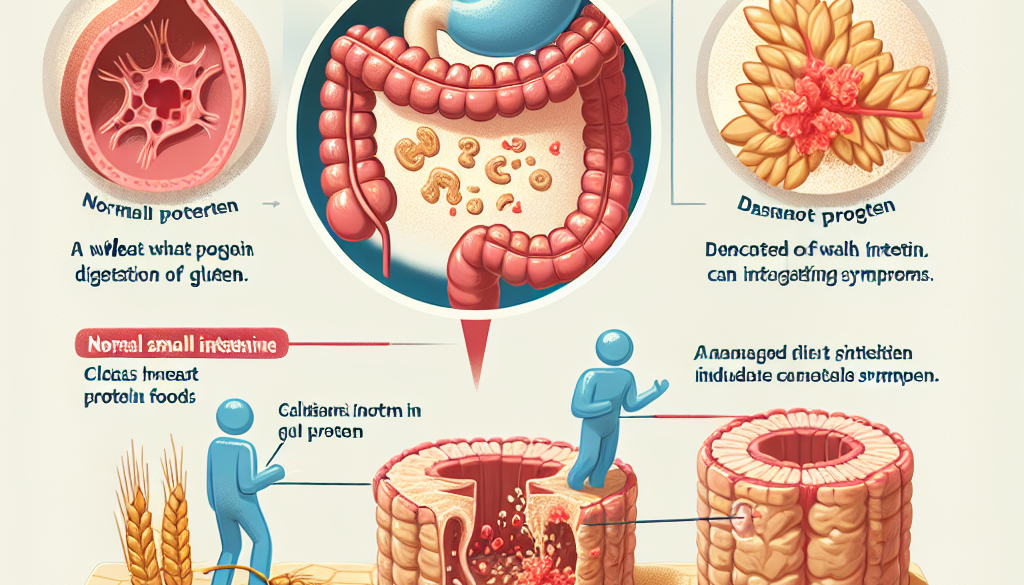Can Celiacs Have Wheat Protein?
-
Table of Contents
- Understanding Wheat Protein and Celiac Disease: A Comprehensive Guide
- What is Celiac Disease?
- The Role of Gluten in Celiac Disease
- Can Celiacs Have Wheat Protein?
- Identifying Hidden Sources of Wheat Protein
- Gluten-Free Alternatives for Celiacs
- Living with Celiac Disease: Tips and Strategies
- Conclusion: The Importance of a Gluten-Free Diet for Celiacs
- Discover ETprotein’s Gluten-Free Protein Products
Understanding Wheat Protein and Celiac Disease: A Comprehensive Guide

Celiac disease is an autoimmune disorder that affects a significant portion of the population worldwide. It is characterized by an intolerance to gluten, a protein found in wheat, barley, and rye. The question of whether individuals with celiac disease can have wheat protein is a critical one, as it pertains to their health and well-being. This article delves into the science behind celiac disease, the role of wheat protein in the diet, and the potential alternatives for those affected by this condition.
What is Celiac Disease?
Celiac disease is a chronic autoimmune condition that primarily affects the digestive system. When individuals with celiac disease consume gluten, their immune system responds by damaging the villi of the small intestine. These villi are responsible for nutrient absorption, and when they are damaged, it can lead to malnutrition and a host of other health issues.
The Role of Gluten in Celiac Disease
Gluten is a composite of two proteins, gliadin and glutenin, which are found in wheat, barley, and rye. It is gliadin that is primarily responsible for the adverse reaction in people with celiac disease. When gluten is ingested, the immune system of a person with celiac disease perceives gliadin as a threat and mounts an immune response that damages the small intestine.
Can Celiacs Have Wheat Protein?
The short answer is no. Celiacs cannot have wheat protein because it contains gluten, which triggers their immune response. Even trace amounts of gluten can cause symptoms and intestinal damage in individuals with celiac disease. Therefore, it is crucial for celiacs to avoid all forms of wheat protein, including wheat flour, wheat starch, and any products derived from wheat.
Identifying Hidden Sources of Wheat Protein
For those with celiac disease, it is essential to be vigilant about the foods they consume. Wheat protein can be found in many processed foods, sauces, and even non-food items like medications and lip balms. Reading labels and being aware of terms that indicate the presence of wheat protein is vital for maintaining a gluten-free diet.
- Look for terms like “wheat flour,” “modified wheat starch,” and “hydrolyzed wheat protein.”
- Be cautious of products labeled “malt” or “malt flavoring,” as these often come from barley.
- Watch out for cross-contamination in facilities that also process wheat-based products.
Gluten-Free Alternatives for Celiacs
Fortunately, there are many gluten-free alternatives available for those with celiac disease. These alternatives allow individuals to enjoy a variety of foods without the risk of gluten exposure.
- Grains like quinoa, rice, corn, and buckwheat are naturally gluten-free.
- Gluten-free flours made from nuts, beans, and other gluten-free grains can replace wheat flour in recipes.
- Many brands now offer gluten-free versions of pasta, bread, and other traditionally wheat-based products.
Living with Celiac Disease: Tips and Strategies
Managing celiac disease involves more than just avoiding gluten. It requires a comprehensive approach to ensure a balanced diet and a good quality of life.
- Educate yourself about celiac disease and gluten-containing foods.
- Plan meals ahead and cook at home to have better control over ingredients.
- Join support groups or online communities for shared experiences and tips.
- Consult with a dietitian who specializes in celiac disease to ensure nutritional needs are met.
Conclusion: The Importance of a Gluten-Free Diet for Celiacs
In conclusion, individuals with celiac disease must adhere to a strict gluten-free diet to prevent the immune-mediated damage caused by wheat protein. While this can be challenging, the availability of gluten-free alternatives and increased awareness have made it easier for celiacs to manage their condition. By avoiding wheat protein and being mindful of potential sources of gluten, those with celiac disease can lead healthy and fulfilling lives.
Discover ETprotein’s Gluten-Free Protein Products
If you’re looking for high-quality, gluten-free protein options, ETprotein offers a range of products that are suitable for individuals with celiac disease. Their selection includes organic rice protein, pea protein, and various seed proteins, all of which are non-GMO and allergen-free. These products provide excellent alternatives for those who need to avoid wheat protein but still want to maintain a protein-rich diet.
About ETprotein:
ETprotein, a reputable protein and L-(+)-Ergothioneine (EGT) Chinese factory manufacturer and supplier, is renowned for producing, stocking, exporting, and delivering the highest quality organic bulk vegan proteins and L-(+)-Ergothioneine. They include Organic rice protein, clear rice protein, pea protein, clear pea protein, watermelon seed protein, pumpkin seed protein, sunflower seed protein, mung bean protein, peanut protein, and L-(+)-Ergothioneine EGT Pharmaceutical grade, L-(+)-Ergothioneine EGT food grade, L-(+)-Ergothioneine EGT cosmetic grade, L-(+)-Ergothioneine EGT reference grade and L-(+)-Ergothioneine EGT standard. Their offerings, characterized by a neutral taste, non-GMO, allergen-free attributes, with L-(+)-Ergothioneine purity over 98%, 99%, cater to a diverse range of industries. They serve nutraceutical, pharmaceutical, cosmeceutical, veterinary, as well as food and beverage finished product distributors, traders, and manufacturers across Europe, USA, Canada, Australia, Thailand, Japan, Korea, Brazil, and Chile, among others.
ETprotein specialization includes exporting and delivering tailor-made protein powder and finished nutritional supplements. Their extensive product range covers sectors like Food and Beverage, Sports Nutrition, Weight Management, Dietary Supplements, Health and Wellness Products, and Infant Formula, ensuring comprehensive solutions to meet all your protein needs.
As a trusted company by leading global food and beverage brands and Fortune 500 companies, ETprotein reinforces China’s reputation in the global arena. For more information or to sample their products, please contact them and email sales(at)ETprotein.com today.














